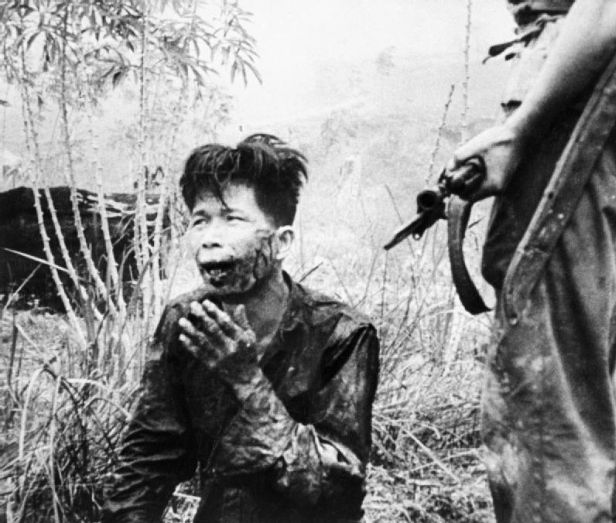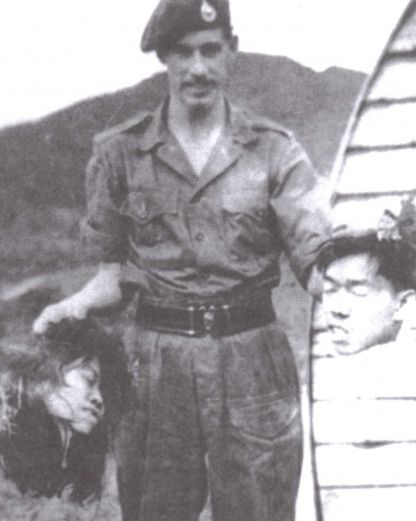| Irish Forums Message Discussion :: British war crimes in Malaysia |
   | Irish Forums :: The Irish Message
Forums About Ireland and the Irish Community, For the Irish home and Abroad. Forums include- Irish Music, Irish History, The Irish Diaspora, Irish Culture, Irish Sports, Astrology, Mystic, Irish Ancestry, Genealogy, Irish Travel, Irish Reunited and Craic
|  
|
British war crimes in Malaysia
 

|
|
|
| Irish
Author |
British war crimes in Malaysia Sceala Irish Craic Forum Irish Message |
|
Irish Tim Brazil
Sceala Philosopher
Location: Recife Brazil
|
| Sceala Irish Craic Forum Discussion:
British war crimes in Malaysia
|
|
|
Not just the Irish who suffered war crimes against their population by the forces of the British Crown.
there is no question that the British crown forces were effectively terrorist soldiers on behalf of the british mafia "royal family" who made their wealth from past war crimes.
War crimes carried out by the forces of the British Crown in Malaysia
British crown held areas in it's former empire by terrorism
List of war crimes carried out by the forces of the British Crown during it's so called Malayan Emergency
Throughout the Malayan conflict, there were instances where British troops detained and tortured villagers who were suspected in aiding the insurgents while attempting to search for them.
A insurgent being held and questioned after his capture in 1952

Brian Lapping said that there was "some vicious conduct by the British forces, who routinely beat up Chinese squatters when they refused, or possibly were unable, to give information" about the insurgents.
There were also cases of the bodies of dead guerrillas being exhibited in public.
The Scotsman newspaper lauded these tactics as a good practice since "simple-minded peasants are told and come to believe that the communist leaders are invulnerable".
British forces often shot anything that moved. A young British officer commented that: "We were shooting people. We were killing them...This was raw savage success. It was butchery. It was horror." One British army conscript recalled that "when we had an officer who did come out with us on patrol I realised that he was only interested in one thing: killing as many people as possible".
British forces also booby-trapped jungle food stores, burned villages and secretly supplied self-detonating grenades and bullets to the insurgents to instantly kill the user.
Some civilians and detainees were also shot, either because they attempted to flee from them on the grounds that they could give the insurgents valuable assistance to continue to fight against British forces or simply because they refused to give intelligence to British forces.
War crimes committed by the British, such as the Batang Kali massacre where 24 unarmed villagers were slaughtered. In that massacre, 7th Platoon, G Company, 2nd Scots Guards surrounded a rubber plantation at Sungai Rimoh near Batang Kali in Selangor in December 1948. They encountered a group of unarmed civilians. During this time, shooting was heard. In total 24 unarmed villagers were killed before the village was set on fire. The only survivor of the killings was a man named Chong Hong who was in his 20s at the time. He fainted and was presumed dead. Other eyewitnesses include the victims' spouses and children such as Tham Yong, aged 17 and Loh Ah Choy, who was aged seven at the time.
The British government attempted to justify the killing on the grounds that the villagers were insurgents trying to escape. This was later found to be false as they were unarmed and not insurgents.
No British soldier was prosecuted for the killings at Batang Kali.
Decapitation and mutilation of insurgents by British forces were also common, a photograph of a Royal Marine commando holding two insurgents' heads caused a public outcry in April 1952. The Colonial Office privately noted that "there is no doubt that under international law a similar case in wartime would be a war crime".

As part of the Briggs' Plan devised by British General Sir Harold Briggs, 500,000 people (roughly ten percent of Malaya's population) were eventually removed from the land.
Tens of thousands of homes were destroyed, and many people were interned in guarded camps called "New Villages". The intent of this measure was to inflict collective punishments on villages where people were deemed to be aiding the insurgents and to isolate civilians from guerrilla activity.
This practice was prohibited by the Geneva Conventions and customary international law which stated that the destruction of property must not happen unless rendered absolutely necessary by military operations.
War crimes have been broadly defined by the Nuremberg Principles as "violations of the laws or customs of war," which includes massacres, bombings of civilian targets, terrorism, mutilation, torture, and the murder of detainees and prisoners of war. Additional common crimes include theft, arson, and the destruction of property not warranted by military necessity.
|
|
|
|
|
|
|
|
|
|











